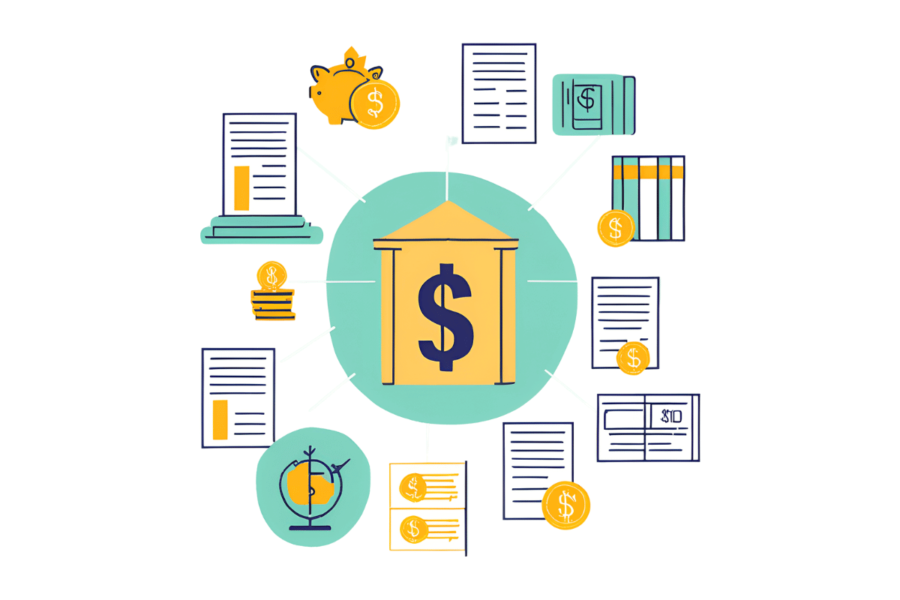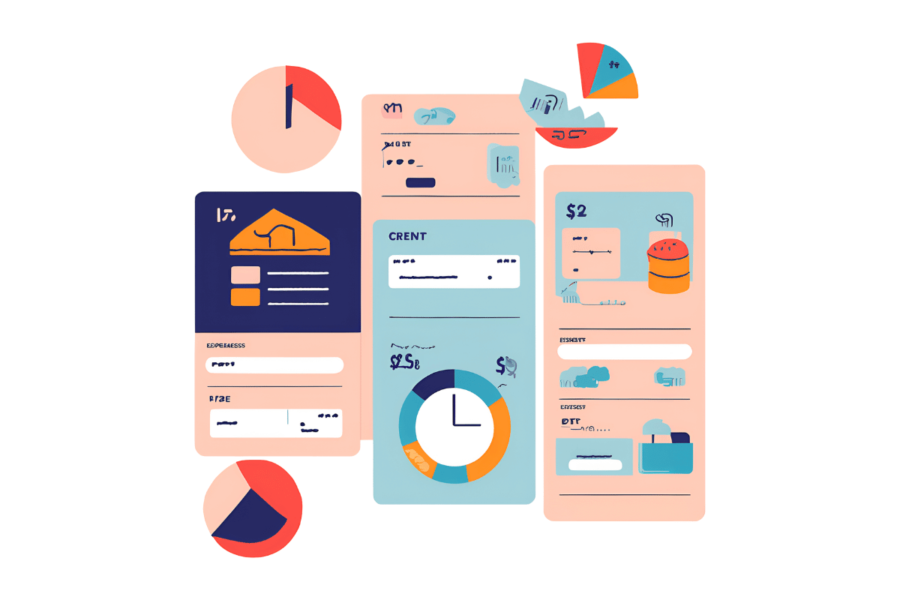It’s easy to overlook the small ways you’re losing money without realizing it.
You might not notice the impact at first, but over time, these habits can add up and prevent you from reaching your financial goals.
In this post, we’ll break down some of the most common ways you could be losing money—and an easy way to fix it!
This post may contain affiliate links. This means I may earn a commission if you make a purchase through my links, at no additional cost to you. I only recommend products or services that I personally use and believe will add value to my readers.
1. Avoidance Coping (Keeping Your Head in the Sand)
One of the most common ways you’re losing money without realizing it is by avoiding your financial responsibilities.
Whether it’s skipping that uncomfortable conversation about a raise or ignoring the late fees on your bills, avoidance coping is costing you in the long run.
Many people fall into this habit because they want to delay discomfort, but delaying action can cause financial issues to snowball.
Solution: Take Small Steps Toward Facing Finances
The good news is that you can start setting up automatic alerts for your bills, savings account, or debit card transactions.
This behavioral nudge forces you to stay aware of your spending habits and prevents you from missing payments or overdrawing your account.
Automating your savings is also a good idea—it makes building an emergency fund much easier without requiring constant effort.
The book Nudge, highlights the importance of subtle changes and encourages better decision making-without limiting your freedom.
2. Obsessively Comparing
Social media makes it tempting to compare your lifestyle with others, but this habit can lead to overspending.
You may feel the need to upgrade your phone, buy a new car, or splurge on luxury items just to keep up with others. In reality, this mindset is one of the most significant ways you’re losing money without realizing it.
Solution: Define Your Financial Goals and Priorities
Instead of comparing yourself to others, focus on what you want. Start by setting specific financial goals, like saving for a home, building retirement savings, or paying off credit card debt.
Ask yourself if your purchases align with these goals. For example, rather than splurging on impulse buys, use that money to pay down high-interest debt or grow your savings account.
3. Not Turning Your Capital Fast Enough
Are you sitting on cash without putting it to work? If so, you’re missing out on opportunities for growth, which is another way you’re losing money without realizing it.
Keeping large amounts of money in your checking account may feel safe, but inflation can erode your savings over time.
Solution: Make Your Money Work for You
A better option is to invest in opportunities that generate a return. For the short term, consider investing in skills that can help you earn extra money, like video editing or digital marketing.
Long-term, putting your money into index funds, a retirement account, or even educational purposes can help grow your wealth. If you’re unsure where to start, try speaking with a financial advisor to create a personalized spending plan.
4. Not Assigning Yourself an Hourly Rate
Many people don’t realize how much money they’re losing by not valuing their time. Failing to assign yourself an hourly rate means you may spend too much time on low-value tasks that could be outsourced or delegated.
Solution: Determine Your Time’s Value and Delegate
One of the easiest ways to save time and money is to assign an hourly rate to your time. For example, if your rate is $30/hour and you spend two hours doing something that could be outsourced for less, you’re losing money.
Outsourcing tasks such as cleaning, meal planning, or even content creation allows you to focus on more productive work.
If you’re short on cash, look for small ways to save time, like using grocery delivery services or automated bill pay. Every minute counts in the long run.
5. Not Living on 90% of Your Income
Living paycheck to paycheck can prevent you from building wealth. Many people fail to save or invest because they don’t set aside a portion of their income.
This habit is another subtle way you’re losing money without realizing it.
Solution: Stick to a 90/10 Budget
A great way to take control of your finances is to live on 90% of your income while saving or investing the remaining 10%.
Automate this process to ensure that a portion of your income goes into a savings account or retirement fund each month. Check out my simple, 8-step payday routine!
Prioritize paying off high-interest debt, and if possible, build an emergency fund for unexpected expenses like car repairs or medical bills. Remember, small changes add up to big savings over the course of a year.
6. Focusing on Cutting Back Instead of Making More
While cutting back on expenses can help, focusing solely on frugality limits your financial potential.
Loss aversion often drives people to save more rather than explore new opportunities for earning extra cash.
Solution: Shift Your Focus to Earning More
One of the best ways to improve your financial situation is to think beyond budgeting.
Look for ways to increase your income, such as starting a side hustle, freelance work, or building passive income streams.
You could also negotiate a raise at your day job or invest in high-demand skills to boost your earning potential.
By finding creative ways to bring in more money, you’ll set yourself up for long-term financial success.
Conclusion
These are just a few of the many ways you’re losing money without realizing it.
By identifying these habits and making small changes, you can take control of your finances and work toward achieving your long-term financial goals.
What’s Your Biggest Financial Weakness?
Do you find yourself spending too much on impulse purchases or avoiding financial decisions?
Let me know in the comments! Share your experiences, you never know who you might be helping 🙂
The information provided in this guide is for educational purposes only. Any actions taken based on this information are at the reader’s own risk. It is advisable to consult with relevant professionals or advisors for personalised advice.



